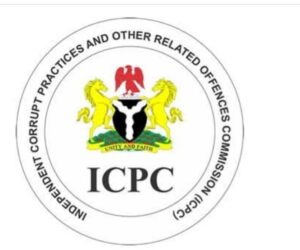Chairman Of The Alliance On Surviving COVID-19 And Beyond (ASCAB), Femi Falana, SAN, has urged all levels of government to ensure adequate funding for the health insurance of vulnerable Nigerians.
Mr Falana disclosed this ollowing the implementation of the National Health Insurance Authority (NHIA) Act of 2022.
Falana in a statement on Sunday, described the NHIA Act as a landmark health sector reform aimed at achieving universal health coverage for all Nigerians and legal residents.
Advertisement
He, however, cautioned that without sufficient funding and full implementation, the vision of accessible and affordable healthcare for every citizen would remain unattainable.
READ MORE : 18 Bodies Recovered, Dozens Remain Trapped In Collapsed Illegal Mining Site In Zamfara
The NHIA Act, signed into law in 2022, replaced the National Health Insurance Scheme (NHIS) Act of 2004, which failed to achieve significant population coverage or unify Nigeria’s fragmented health insurance system.
According to Falana, the new legislation represents a critical shift in health policy by making health insurance compulsory for all Nigerians.
“It also establishes a Basic Minimum Package of Care that must be provided to every citizen, as well as a Vulnerable Group Fund to subsidise the care of children under five, pregnant women, the elderly, persons with disabilities, and the poor.
“The NHIA Act has created a regulatory and institutional framework to promote, supervise, and regulate both public and private health insurance schemes in Nigeria.
“It is designed to ensure that no Nigerian is left behind in accessing quality healthcare,” Falana stated.
As part of efforts to expand coverage, President Bola Ahmed Tinubu, on September 3, 2025, issued a directive mandating all Ministries, Departments, and Agencies (MDAs) to enrol their employees in the NHIA scheme.
The directive also requires entities participating in public procurement to present a valid NHIA-issued Health Insurance Certificate.
Additionally, the Secretary to the Government of the Federation has been assigned to enforce the directive and monitor compliance — a move expected to significantly boost health insurance enrolment across the country.
The NHIA Act further mandates all 36 state governments and the Federal Capital Territory to establish state health insurance schemes to guarantee access to the basic minimum package of care for residents.
States that have yet to establish such schemes are permitted to engage third-party administrators until their programmes become fully operational.
Falana stressed that these provisions align with Section 17(3)(d) of the Nigerian Constitution, which obliges the government to provide adequate medical and health facilities for all citizens.
He also referenced Article 16 of the African Charter on Human and Peoples’ Rights, which affirms the right of every individual to the highest attainable standard of physical and mental health.
“The majority of Nigerians today fall within the vulnerable category.
“Therefore, the federal, state, and local governments must rise to their constitutional and legal duty to fund health insurance for all citizens,” Falana declared.








